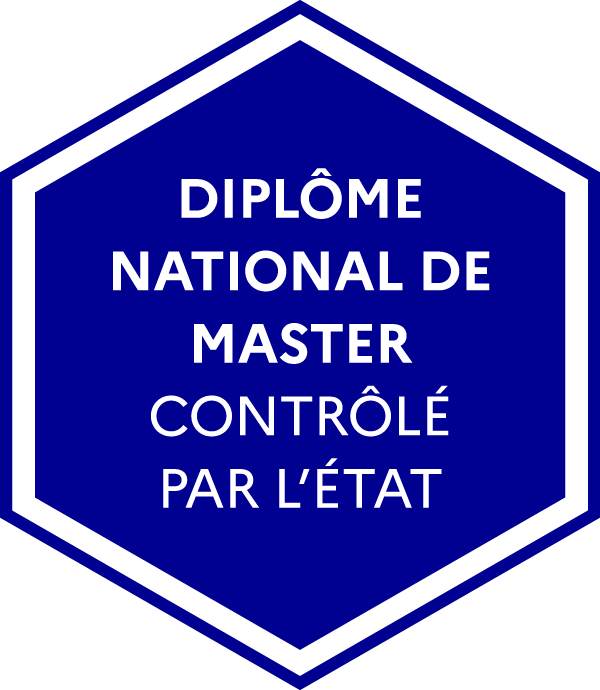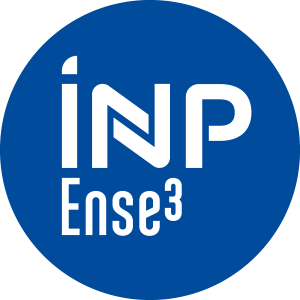Number of hours
- Lectures 28.0
- Projects -
- Tutorials -
- Internship -
- Laboratory works 32.0
- Written tests -
ECTS
ECTS 5.0
Goal(s)
The aim of this module is to study various innovative technologies whose development has an impact on that of smart power grids. Design methodologies, which must form an integral part of their future development processes, are at the heart of the skills to be acquired to train in these topical areas.
This module contains four sub-sections, the objectives of which are set out below.
1. The first part of this module is to provide an up-to-date theoretical overview of an emerging technology: superconductivity.
2. The second part focuses on power electronics components. An initial theoretical part is completed in the design office, then illustrated by a practical part, involving experimentation in a clean room to manufacture a component (which is then characterized), in order to compare practice with simulation.
3. The third part of the module proposes the study of design methods that take into account environmental aspects in addition to technical and economic ones. The aim is to ensure that the development of innovative components, examples of which will have been seen during this module, is not done in spite of common sense in terms of sustainable development. This method is put into practice in the design office.
4. The last part of the module introduces us to Power Factory, a dynamic power system simulation tool. It is widely used by network operators and offers interesting capabilities for the curriculum.
The skills acquired in this module are multiple. Mainly, an up-to-date knowledge of the maturity levels of some innovative technologies linked to the use of electrical energy, as well as the associated design methods. All of this is illustrated through experimentation and hands-on learning.
Vincent DEBUSSCHERE
Content(s)
Course-TD (Class and exercices)
- Advanced technology for electrical networks: the example of superconductors.
- From semiconductors to power electronics (small signal modeling and simulation). From materials to PWM control.
- Environmental impact and eco-design.
BE (Lab work)
- Sizing and control of static converters.
- Insulation in high-voltage equipment.
- Application of eco-design methods to practical cases in electrical engineering.
- Case studies using Power Factory software.
TP (Practical work)
Work in a clean room: design, production and characterization of a basic static converter component.
- Basic knowledge of electrical engineering (rotating machines, power converters and electrical calculations).
- Component physics.
- Basic knowledge of optimization methods as well as classic office and scientific tools (spreadsheets and scientific calculators).
- Basic knowledge of electronic simulation tools (PSIM).
- Basic principles of network operation
- Modeling of major industrial processes (processes and materials)
*Normal session: non-redeemable assessment (EN)*. Everything is evaluated during the module, it is a continuous evaluation (CC)
- TP and BE in power electronics (EXAM1 30%)
- Report and oral presentation on superconductivity (EXAM2 30%)
- BE in eco-design (EXAM3 30%)
- BE on PowerFactory (EXAM4 10%)
No retake for this module
EN 100%
The exam is given in english only 
The course exists in the following branches:
- Curriculum - Master inter SGB - Semester 7 (this course is given in english only
 )
)
Course ID : WEUS1ICS
Course language(s): 
You can find this course among all other courses.
- Power electronics :
* MOHAN, Ned et UNDELAND, Tore M. Power electronics: converters, applications, and design. John Wiley & Sons, 2007.
* ERICKSON, Robert W. et MAKSIMOVIC, Dragan. Fundamentals of power electronics. Springer Science & Business Media, 2007. - Eco-design
* BREZET, Han, VAN HEMEL, Carolien, UNITED NATIONS ENVIRONMENT PROGRAMME. INDUSTRY AND ENVIRONMENT (PARIS)., et al. Ecodesign: a promising approach to sustainable production and consumption. UNEP, 1997.
* JOLLIET, O., SAADE, M., et CRETTAZ, P. ACV, comprendre et réaliser un écobilan. Eyrolles, 2005. - Supra-conductivity
* TIXADOR, Pascal. Les supraconducteurs. Ed. Techniques Ingénieur, 1995.
* TIXADOR, Pascal. Utilisation des supraconducteurs dans les réseaux autonomes. In : Journées du club EEA 2013. 2013.
French State controlled Master's degree




